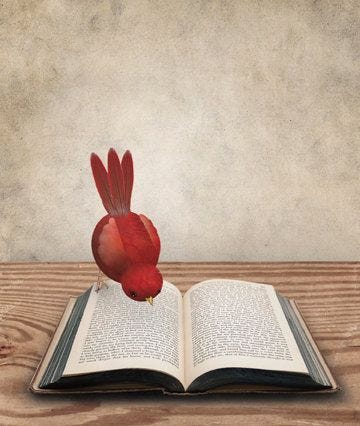The most brain-breaking question professional writers regularly get asked is: How do you find an agent?
It’s maddening not because it’s a bad question but because it’s so very, very good. For starters, ‘How do I find an agent?’ is a question that is truly a question— rather than, say, a clever statement or observation dressed up as one, which is what happens at public events. It’s also a practical query, precise and to the point. Because unless you’re planning to publish yourself, you really do need an agent, and a good one really can change your life.
The reason you are unlikely to get anything but a mealy-mouthed answer out of a writer to whom you dare put the Agent Question is as complicated and confounding as the question itself. So in the short essay that follows I have tried to provide a) a definitive answer and b) explain exactly why it’s a question writers hate being asked.
First though, for the purposes of clarity let’s set out what an agent actually does, because it’s integral to understand how agents work and think, especially if you want to find a good one to represent your work.
An agent, practically speaking, is the conduit to publishers, also known as “commissioning editors” or “acquiring editors” who buy and edit manuscripts and turn it them into books. Agents are the middle men, essentially, but of a mysterious and magical kind. The best ones are also talent scouts, cheerleaders, life coaches, line editors, therapists, lawyers, rockstars, drinking buddies and poets rolled into one.
The reason agents are so mysterious, I suspect, is because they work behind the scenes and because of this they are so hard to find. Pause and think for a moment. How many writers can you name? Now, how many publishing houses? I’ll bet quite a lot. I won’t even ask about books. But agents… who even are they? I’ve been a writer in London for nearly twenty years and if I count the ones I’ve met in person over the course of my career I can’t even get through the fingers on both hands.
Technically, every professional writer has a personal answer to the Agent Question, but the problem with almost all of these answers, or at least what makes them deeply unsatisfactory from aspiring writer’s point of view, is that they tend to be anecdotes — and while anecdotes, especially ones involving cocktail parties, are often amusing, they rarely contain any useful advice.
Having said that, if you happen to be an aspiring writer, you should feel free to keep posing the Agent Question to professionals as much as you like. If nothing else it often shuts writers up. If it prompts a sour face or sarcastic deflection, remember this is in part because it’s a stumper and writers like to hold fourth in definitive terms. But the main reason we don’t like answering it because it fills us with anxiety and dread. The truth is, writers don’t like thinking too much about our agents or how we found them because, for writers, agents are not just people but also human thought traps.
When a professional writer’s career is going well, we seek our agent’s counsel and regard them with slavish awe. We adore our agents in the good times (god how we love them after signing a book deal!) but we love them in the possessive way female hysterics in late 19th Century Vienna loved Dr. Freud. This is because even the most successful writers are painfully aware that their agent (like their therapist) has other clients. This is normal of course, some of our agent’s other clients we might might even count as colleagues and friends. We might love and be fans of their work. But the problem with these other writer-clients is that they are all, rather upsettingly, not us. Even for the most confident, successful and generous of writers, deep down, this hurts.
On the flipside, if a writer’s career is lagging? Well then, thinking of our agent is torture. If say, we’re late on something or struggling or blocked or trapped in a rut (a.k.a. most of the time), the thought of our agent fills us with animal panic and makes our blood run cold. Either we become irrationally terrified our agent might dump us for someone better or we start to silently resent them, and the latter is far worse. For while there are some bad agents out there, it’s also no secret that the path to literary obscurity and poverty is paved with the bitter souls who blamed their agent for their own lack of success.
So that’s the real reason why writers hate the Agent Question and also why it persists languishing unanswered — until now. Because I have decided to step up and put it to rest. To this end, I have thought long and hard about and come up with a good answer. It might not be the only answer, but it’s a definitive one. And I know for sure that it works. So here goes (and yes I’m afraid you’ll have to pay but I promise you it’s good):





